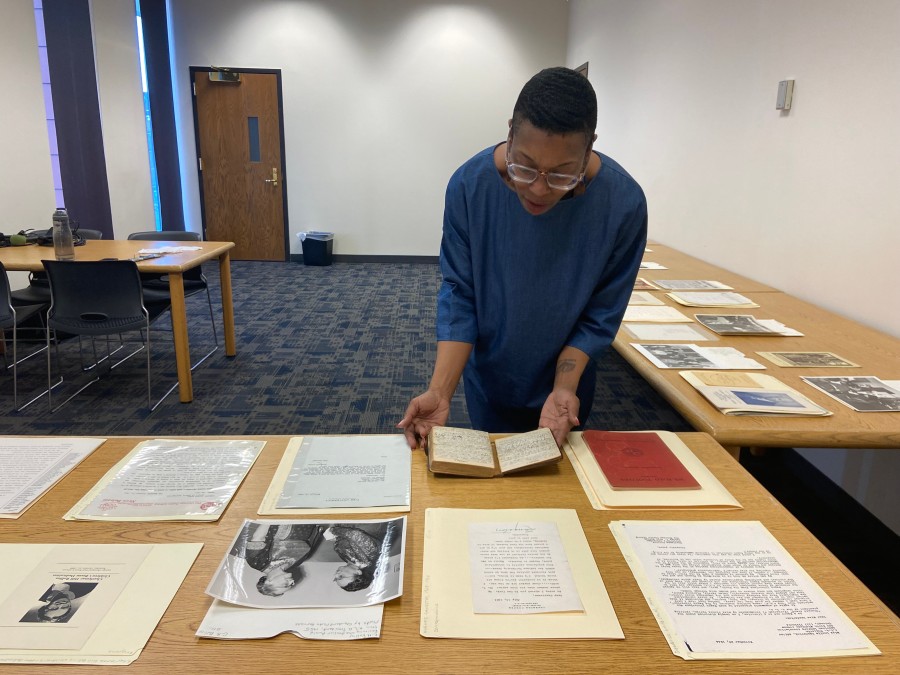Thousands of Black history archives will be made available to the public through a $2 million grant to the Chicago Public Library
A new Public Knowledge Ethnic Studies grant from the Mellon Foundation gives the Chicago Public Library $2 million to make access to Black history archives more equitable.
By Adora Namigadde

Thousands of Black history archives will be made available to the public through a $2 million grant to the Chicago Public Library
A new Public Knowledge Ethnic Studies grant from the Mellon Foundation gives the Chicago Public Library $2 million to make access to Black history archives more equitable.
By Adora NamigaddeLetters from poet Langston Hughes. Pamphlets detailing Negro History Week. The personal diary of librarian Charlemae Hill Rollins. The Chicago Public Library is a treasure trove of unique pieces of Black history that now will be more accessible to the public.

The Mellon Foundation is giving the Chicago Public Library Foundation $2 million to process and digitize up to 270,000 pieces over the next four years.
“Archival collections in general, they don’t circulate. People usually do have to come see them in person. But digitizing is one of those things that makes it so that everybody doesn’t have to come see it in person. Geography, that’s definitely a thing for most folks. That’s an access issue,” said Stacie Williams, head of archives and special collections for CPL.
The four-year Mellon Foundation’s Ethnic Studies Future Initiative grant will support The Renaissance: Activating Chicago Public Library’s Black Collections. Williams said in addition to processing and digitizing materials, the library aims to create new programming, exhibits, and begin to develop future collections. The grant will let the library partner with the Inclusive American History Commission in Illinois to create an open-source curriculum for teachers to teach Black history in public schools.
“This grant will also allow us to do critical collection development. Because while we do have a really vast representation of materials documenting Black South Side life, we need more materials about Black West Side life, Black North Side life, Black queer life, which is scattered all over the city,” Williams said.

CPL will use the grant to garner public interest in the collections themselves and their themes. Events will include workshops to teach people how to care for antique papers and materials, talks on different facets of Chicago history and a recreation of the Parkway Ballroom conversations by prominent sociologist Horace Cayton Jr. These conversations acted as a sort of town square and center for high-level debate for African Americans in the 1940s. The library will use the grant to invite researchers nationwide to explore the collection.
The Vivian G. Harsh Research Collection at the Woodson Library is the largest African American history and literature collection in the Midwest. While the bulk of the materials concerning the grant will be from this collection, the grant will also develop and consolidate collections at the Northside Neighborhood History Collection at Sulzer Regional and Special Collections & Preservation at the Harold Washington Library Center.

Adora Namigadde is a metro reporter for WBEZ. Follow her on Twitter at @adorakn.